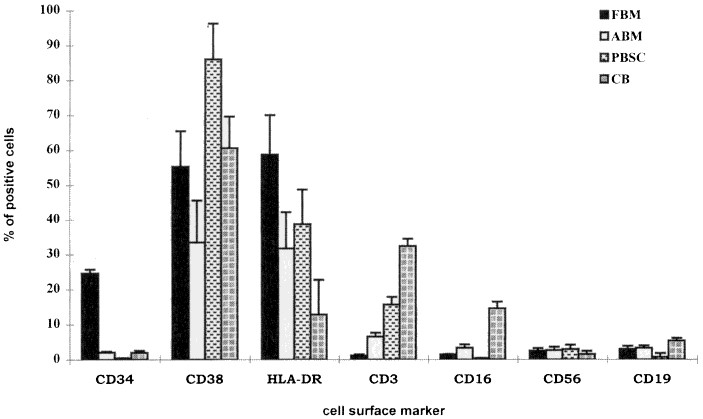May That Be In 2023
Hope For Parkinson’s

Parkinson's disease is a degenerative disorder caused by nerve cell loss in the area of the brain that controls movement. It is a progressive condition that affects the neurological system and the nerve-controlled areas of the body.
Hope For Parkinson’s
The FDA has approved an Alzheimer's medicine that reduced cognitive deterioration in a clinical experiment. This novel medicine has the potential to halt or delay the course of Alzheimer's disease. As a result, patients and families affected by Parkinson's disease are rooting on scientists in the United States and throughout the world to achieve comparable success for Parkinson's... Could that be in 2023?
2023 May Be The Year!
With clinical trial findings scheduled to be announced and important new initiatives being launched, 2023 is shaping up to be an exciting year of Parkinson's disease research.
The ILCT Research Pipeline:
Cure Parkinson's has established the iLCT research pipeline to accelerate the background research and more strong evidence required to clinically test and develop more medication candidates through the iLCT initiative. They hope that by proactively issuing funding requests for particular, potentially therapeutic molecules that they have outlined, they would be able to speed up the process of discovering novel disease-modifying medicines for the Parkinson's community. The iLCT pipeline was started towards the end of 2022, and they are eager to see the effects of this proactive and forward-thinking endeavor.
Ambroxol:
2023 has started on kick-out with the revelation that the world-first phase 3 clinical research of the cough drug ambroxol in Parkinson's patients is set to commence. Ambroxol is one of several medications aimed at disease modification in Parkinson's disease that has been prioritized for clinical studies through the International Linked Clinical Trials (iLCT) initiative; the findings of additional iLCT clinical trials are expected in 2023.
GLP-1 Receptor Agonist Trial Results:
GLP-1 receptor agonists are a type of diabetic treatment that has recently been repurposed for Parkinson's disease. Peptron initiated its GLP-1 agonist medication development program in response to the iLCT's prioritization of this type of medicine. While the preliminary findings are disappointing, Peptron has stated that there is enough further positive evidence to continue developing the PT320. Several other GLP-1 receptor agonist clinical studies are underway to investigate the drug's potential usage in the treatment of Parkinson's disease. Neuraly, another biotech firm following iLCT's lead on GLP-1 agonists, has been running a trial of their novel GLP-1 receptor agonist NLY01 in the United States, with findings due in 2023. Lixisenatide is another GLP-1 receptor agonist in clinical trials for Parkinson's disease, and the formal findings of this phase 2 clinical study are expected this year.
Additional Clinical Trials:
A clinical trial is being conducted to investigate the usage of the liver medication UDCA in Parkinson's disease patients. Data from laboratory experiments utilizing UDCA to treat Parkinson's disease models showed that UDCA is neuroprotective - that it may rescue, recover, or regenerate nerve cells (neurons). This was a short clinical trial that largely assessed the drug's safety and tolerability, as well as several biomarkers - samples obtained from the patients.
 Community Lifeline Partnership Zone
Zone 2A - AVAILABLE FOR ADVERTISING
Community Lifeline Partnership Zone
Zone 2A - AVAILABLE FOR ADVERTISING
 Community Lifeline Partnership Zone
Zone 2B - AVAILABLE FOR ADVERTISING
Community Lifeline Partnership Zone
Zone 2B - AVAILABLE FOR ADVERTISING
 Community Lifeline Partnership Zone
Zone 2C - AVAILABLE FOR ADVERTISING
Community Lifeline Partnership Zone
Zone 2C - AVAILABLE FOR ADVERTISING
Hospitals / Physicians & Surgeons / Clinics:
May That Be In 2023
Hope For Parkinson’s

Parkinson's disease is a degenerative disorder caused by nerve cell loss in the area of the brain that controls movement. It is a progressive condition that affects the neurological system and the nerve-controlled areas of the body.
Hope For Parkinson’s
The FDA has approved an Alzheimer's medicine that reduced cognitive deterioration in a clinical experiment. This novel medicine has the potential to halt or delay the course of Alzheimer's disease. As a result, patients and families affected by Parkinson's disease are rooting on scientists in the United States and throughout the world to achieve comparable success for Parkinson's... Could that be in 2023?
2023 May Be The Year!
With clinical trial findings scheduled to be announced and important new initiatives being launched, 2023 is shaping up to be an exciting year of Parkinson's disease research.
The ILCT Research Pipeline:
Cure Parkinson's has established the iLCT research pipeline to accelerate the background research and more strong evidence required to clinically test and develop more medication candidates through the iLCT initiative. They hope that by proactively issuing funding requests for particular, potentially therapeutic molecules that they have outlined, they would be able to speed up the process of discovering novel disease-modifying medicines for the Parkinson's community. The iLCT pipeline was started towards the end of 2022, and they are eager to see the effects of this proactive and forward-thinking endeavor.
Ambroxol:
2023 has started on kick-out with the revelation that the world-first phase 3 clinical research of the cough drug ambroxol in Parkinson's patients is set to commence. Ambroxol is one of several medications aimed at disease modification in Parkinson's disease that has been prioritized for clinical studies through the International Linked Clinical Trials (iLCT) initiative; the findings of additional iLCT clinical trials are expected in 2023.
GLP-1 Receptor Agonist Trial Results:
GLP-1 receptor agonists are a type of diabetic treatment that has recently been repurposed for Parkinson's disease. Peptron initiated its GLP-1 agonist medication development program in response to the iLCT's prioritization of this type of medicine. While the preliminary findings are disappointing, Peptron has stated that there is enough further positive evidence to continue developing the PT320. Several other GLP-1 receptor agonist clinical studies are underway to investigate the drug's potential usage in the treatment of Parkinson's disease. Neuraly, another biotech firm following iLCT's lead on GLP-1 agonists, has been running a trial of their novel GLP-1 receptor agonist NLY01 in the United States, with findings due in 2023. Lixisenatide is another GLP-1 receptor agonist in clinical trials for Parkinson's disease, and the formal findings of this phase 2 clinical study are expected this year.
Additional Clinical Trials:
A clinical trial is being conducted to investigate the usage of the liver medication UDCA in Parkinson's disease patients. Data from laboratory experiments utilizing UDCA to treat Parkinson's disease models showed that UDCA is neuroprotective - that it may rescue, recover, or regenerate nerve cells (neurons). This was a short clinical trial that largely assessed the drug's safety and tolerability, as well as several biomarkers - samples obtained from the patients.
Source: MAW G.H.M. Media
 Community Lifeline Partnership Zone
Zone 2A - AVAILABLE FOR ADVERTISING
Community Lifeline Partnership Zone
Zone 2A - AVAILABLE FOR ADVERTISING
 Community Lifeline Partnership Zone
Zone 2B - AVAILABLE FOR ADVERTISING
Community Lifeline Partnership Zone
Zone 2B - AVAILABLE FOR ADVERTISING
 Community Lifeline Partnership Zone
Zone 2C - AVAILABLE FOR ADVERTISING
Community Lifeline Partnership Zone
Zone 2C - AVAILABLE FOR ADVERTISING
From the same category

The Clinic that Puts Women First
Tchabo Care Obstetrics and Gynecology Clinic in Arlington, Virginia


